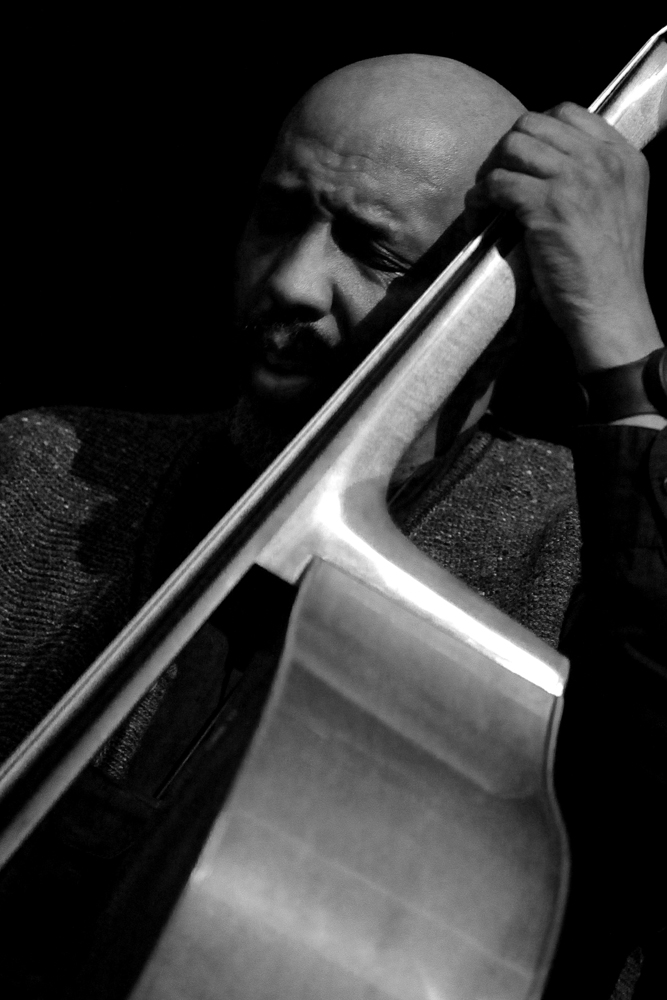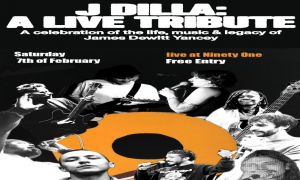
Composed and conducted by Parker, Double Sunrise Over Neptune is an extended two-part work for 16 musicians that combines Indian-themed mantras, worldly rhythms, collective improvisation and multicultural instrumentation into a cohesive whole. The piece was performed by a diverse cast of musicians, including renowned Indian vocalist Sangeeta Bandyopadhyay, who traveled from India for the world premiere on the opening night of Vision Festival XII on June 19th, 2007. Due to technical problems during that first performance, the ensemble reconvened the following day to re-record the piece, and this release documents that entire second performance as well as the second half of the premiere.
In his review of the opening night performance, the Village Voice's Larry Blumenfeld wrote, “Parker's hour-long composition allowed for some fascinating musical dialogues: alto saxophonist Rob Brown and singer Sangeeta Bandyopadhyay traded undulating phrases; Joe Morris's guitar and Brahim Fribgane's oud eerily shadowed each other. But, as with so many of Parker's large-ensemble works, it was the entrancing ebb and flow--and the sparkle of silence after a crescendo--that made a lasting impression." JazzReview.com's Bryan Zoran added, “the beauty of this piece was not defined so much by the individual soloists, but rather by the collective sound of the group. Credit writer and leader William Parker for bringing together this eclectic mix of musicians and constructing the musical canvas for them to create this masterpiece."
“Double Sunrise Over Neptune was borne of a concept I call universal tonality," explains Parker in the liner notes, “which is based on the idea that all sounds, like human beings, come from the same place. All sound has a heartbeat and breathes the same as each human being. Musically, Double Sunrise Over Neptune has to do with the blending of sound with intent and message. The sound is built in layers. The soil is silence, the root coming out of the soil is called the bass line, and the rhythms are called branches. Motifs, scales and melodies are the leaves. Improvisations are the fruit which ripens as we listen. All the musicians involved in this project are great leaders, composers and improvisers in their own right. I thank them with all my heart for their unique contributions on this recording."
In addition to Parker, who played double reeds and doson'ngoni, and Bandyopadhyay, the orchestra featured Lewis Barnes (trumpet), Rob Brown (alto saxophone), Gerald Cleaver (drums), Bill Cole (double reeds), Hamid Drake (drums), Shayna Dulberger (bass), Brahim Frigbane (oud), Jason Kao Hwang (violin), Sabir Mateen (tenor saxophone and clarinet), Joe Morris (guitar and banjo), Jessica Pavone (viola), Dave Sewelson (baritone saxophone), Mazz Swift (violin) and Shiau-Shu Yu (cello).
Parker has been called “one of the most inventive bassist/leaders since Mingus" (The Penguin Guide to Jazz Recordings, Eighth Edition), “one of the true leaders in American music" (Bill Shoemaker, JazzTimes), “avant-garde jazz's preeminent bassist" (A.D. Amorosi, Philadelphia Inquirer) and “an artist whose talent seems to have no limits" (James Taylor, AllAboutJazz.com). In March 2007, Time Out New York named him one of its 50 Greatest New York Musicians of All Time. An omnipresent force in contemporary improvised music, both as a bandleader and bassist with a vast array of the genre's most respected ensembles, Parker appears on over 100 recordings from the past decade alone. His own bands include the William Parker Quartet, the Raining On The Moon Sextet, The Little Huey Creative Music Orchestra and The Inside Songs of Curtis Mayfield. He is also an educator, organizer, theorist and author.
For more information contact Improvised Communications.




























